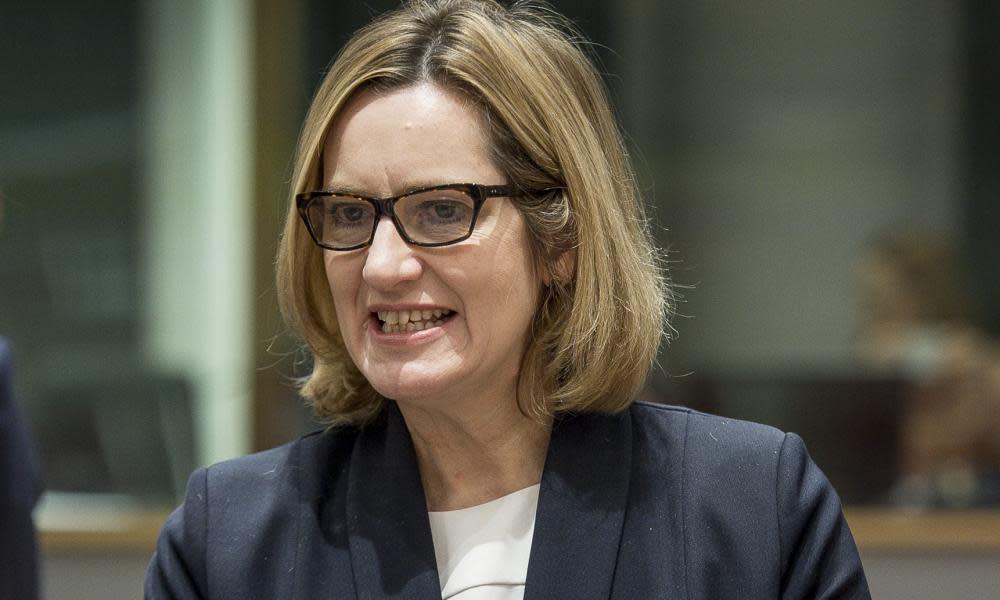Amber Rudd seeks more EU action over online extremism

Amber Rudd has called for more EU action to tackle online extremism, as she steps up pressure on tech firms to make it harder for terrorists to use the internet.
Meeting her EU counterparts in Brussels, just days before Britain embarks on its European divorce by triggering article 50, the home secretary reiterated her message that internet companies needed to be more proactive in efforts to combat terrorism.
Rudd did not name specific companies, but on Sunday she called for police and intelligence services to be given access to WhatsApp and other encrypted messaging services, a proposal criticised by one leading MEP as disproportionate and dangerous.
Jan Philipp Albrecht, a German Green, who is a vice-chair of the European parliament’s civil liberties and justice committee, said Rudd’s WhatsApp idea would “dramatically weaken internet security”.
The MEP, a privacy campaigner, said allowing security services to access encrypted messages would open the door to hackers, escalating “the potential to misuse ... and to hurt and harm”.
Albrecht warned against handing authorities sweeping surveillance powers. He said security services already had means of detecting keystrokes and recording voice calls of terrorist suspects under warrant. “What you cannot do is have no limit and say everyone needs to be under surveillance or under the possibility to decrypt everything,” he said.
Rudd made her points in a brief statement at the end of the one-day meeting and the issue was not debated. She also discussed the UK’s own specialist unit dedicated to removing terrorist material from the internet.
Her calls to allow security forces to unlock WhatsApp are likely to get a sympathetic hearing from her EU counterparts. France and Germany said last year technology companies should be compelled to ensure encrypted content was available to terrorism investigators. The French government has called for an EU law, although so far no plans have been drawn up. A spokesman for the European commission, which proposes all EU laws, said nothing had been ruled out.
Matthias Fekl, France’s interior minister, said the attack on London was an attack on democracy. “We are going together to strengthen even more our cooperation on security on the struggle against terrorism,” he said, describing London and Paris as “two magnificent European cities that have been attacked by terrorist barbarism”.
After the 28 ministers held a one-minute’s silence to remember the victims of the Westminster attacks, Rudd said she had been struck by messages of support from her EU colleagues. “The threat we face is an international one and preventing these attacks is a common aim,” she said. “I want to make it clear that the UK is, and will continue to be, a strong, reliable and committed partner in the fight against terrorism and other threats to our security.”
The police minister, Brandon Lewis, will hold more detailed talks in Brussels on Tuesday on cybersecurity and Rudd has summoned technology companies to a meeting on Thursday.
Dimitris Avramopoulos, the EU home affairs commissioner, said the EU would be redoubling its work in the coming months, as the London attacks showed that “homegrown radicalisation ... was one of our biggest challenges”. He met bosses of Twitter, Facebook and YouTube in California earlier this month to discuss an existing EU-led voluntary scheme to remove terrorist content from the internet.
The scheduled EU meetings come just before the British government launches the formal EU exit process. The article 50 exit clause is silent on security issues, but Brexit is likely to require painstaking renegotiation of multiple accords on police cooperation and crime-fighting.

 Yahoo News
Yahoo News 
